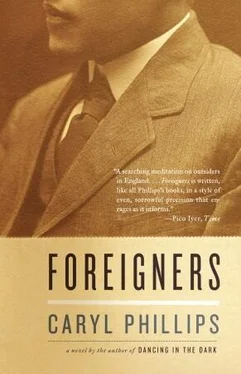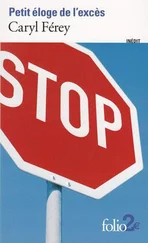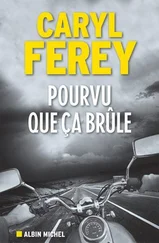And after twenty-eight days of darkness they released you, David. No longer a stowaway. No longer a prisoner. You had endured your punishment and you were free in your new city, and surrounded by strange white faces. It was nearly winter. You were cold, but you were determined, and you found yourself a place to sleep. Beyond Woodhouse Moor and behind the university. 209 Belle Vue Road, a tall three-storey terraced brick house, handsome in its proportions, easily divisible into living units. A room in a house. A room in an overcrowded house full of working men, but none of them African. Lonely David, all by yourself. And at night when you lay on your single mattress and listened to the sound of doors banging and voices being raised, and lovers calling out to each other with passionate indifference, you understood that you were in a new country. You curled your small shivering body tightly into a ball in an attempt to trap some heat and survive the night. And in the morning you took the bus to the central bus station, and then walked over Crown Point Bridge to the far bank of the River Aire and past the factory that made engines for trains that would soon be dispatched to India and other far-flung corners of the empire. You followed the hundreds of workers who flowed down Black Bull Street and in the direction of the bleak factories that choked the lanes and alleyways between Hunslet Road and the River Aire, and you walked briskly towards your job at West Yorkshire Foundries. You generally had to have some sort of skill to find employment in Hunslet, particularly if you worked at West Yorkshire Foundries for this was a place that made mouldings, but only for top-of-the-line cars. Smart cars, like Triumph. However, in this factory there was some low-skilled work, and they employed you, David. And then, at the end of the day, you would hear the hooter and walk out on to the windswept streets where you crossed paths with those flooding in to do the night shift. Up above your head, you could see the chimneys which continued to pump out soot and smoke into the grey sky. Aside from the one row of back-to-back houses on Sayer Road (whose occupants were always the last to arrive at work for they would not roll out of bed until they heard the hooter) you passed nothing but factories on your walk back to and over Crown Point Bridge. Row upon row of factories. Once you reached the bus station you'd wait for the bus that would take you home. To 209 Belle Vue Road and your room in a house full of foreigners with their strange food, and their strange music. The English you were already used to, for they were a part of your world in Nigeria, but many nations lived in this noisy house. If it was not a night when you had to attend college you might walk up the hill and then across Woodhouse Moor towards Chapeltown and the pubs that would accept you; pubs in which you might reasonably expect to find those in whose company you might pass some time. And once there, in a pub, you would stand with your half of beer (because you were not much of a drinker) and listen to the talk and the laughter until the man behind the bar rang the bell ('Time, ladies and gentlemen, please'). Because everybody was grateful to the man for not running a pub that operated a colour bar all drinks would be drunk quickly and then, as a group, everybody would leave the pub and you would turn to the right by yourself and begin the long trek back across Woodhouse Moor, which often involved enduring the hostility of young louts who idled on benches, or beneath trees, smoking cigarettes and eager to embrace trouble. But you ignored them and pressed calmly on your way, although sometimes you were forced to flee in your suit and collar and tie, but being young and fit you were able to fly away from your enemies and go home to 209 Belle Vue Road and pass quickly up the stairs to your room. And then you disappeared, David. And then you just disappeared.
I first saw him in the Cambridge pub on North Street. He was part of a group of coloureds who were drinking. Mainly Africans, I think. I noticed him because he was so smartly dressed. This must have been about 1950 or 1951. The Cambridge didn't have a colour bar, unlike most of the other pubs in Leeds. Most of them had big signs in the window that read 'No Coloureds, No Dogs, No Gypsies', that sort of thing. Either that, or they'd have a quota which meant they'd only let a certain number in so as not to 'spoil' the English atmosphere. Nightclubs nearly always had a quota, apart from the Mecca Ballroom in town where anybody could go and dance. But in most cases pubs just preferred to have an outright bar on coloureds. The Cambridge on North Street was different, and they didn't give anybody any hassle. That's where I first saw him. The pubs closed at 10:30 p.m. in those days, and when we all came out of the pub everybody turned to the left. David was the only one who turned to the right and he began to walk off by himself. I asked one of the others where he was going to, and they said that he lived over by the university so I assumed that he must have been a student. In those days there were two groups of Africans in Leeds. The first group were the students, and most of them lived around the university area. The second group were the working Africans and they mainly centred around the Chapeltown area. In fact, some of the workers also studied at night. During the day they might be employed in some form of engineering, but at nights they would study. But, you know, as time went by a lot of them stopped studying and they just concentrated on making money. But there were always the two groups, the workers and the students. The two groups would often converse together in the pubs without any problems, but when we all left the pub they would go their separate ways. On this particular night, the first night that I met him, the working group turned left towards Spencer Place, which was the neighbourhood that they all lived in. David turned right.
The Booma Boys
The Nigerian warriors came home from the Burma war filled by the same impatience with the past that flung their English comrades into Clement Attlee's grim embrace. Among them was a residue of restless souls whose misconduct in Lagos won them the name of 'Burma Boys'. When the late forties raced into Nigeria (as they never did to war-sodden, static, 'welfare' England), this name became 'Booma,' and the 'Boys' really boys: for a new generation of goodbad lads sprung out of the Lagos pavements, who were too young to have fought overseas but old enough to demand that the future happen quickly now. Many of these vivid scamps, innocent as rogues under twenty-three can be, were suddenly gripped by a deep urge to know the world; and as swallows do, they took off from Africa for England with nothing but a compelling instinct as their baggage, stowing away, signing on and deserting, sometimes cajoling minimal fares from rightly reluctant families. Their landfall was in the big English dock cities, and they loped ashore blithely confident that the world loved them and owed them a treasure.
Colin MacInnes, 1960
My second memory of meeting David was at a dance at the Jubilee Hall in Chapeltown. Today the place is some kind of a media centre, but it was originally built in the thirties as a Jewish social centre back when the Chapeltown area was rather grand and somewhat Jewish. The Jubilee Hall would allow us to rent rooms for dances and here, as in the pubs, the African students mixed with the African workers. With the West Indians there were actually more workers than students, but it was the other way around with the Africans. However, I do seem to remember that quite a few of the Trinidadians were doing medicine, dentistry, law, and accounting and so on. The second time I saw David was at the Jubilee Hall dance and I noticed him because he was smarter than most in his dress sense. David always wore cool suits, always a collar and tie, and when he began to dance he danced as though he had music in his soul. In fact, when David walked he did so as though he was walking to music. There was a great rhythm to his steps. The kind of music they played at Jubilee Hall dances was Hi Life and Steel Pan, and David was in his element. I noticed him that first time because he turned the wrong way. I noticed him the second time because he was such a great dancer.
Читать дальше











![Unknown - [Carly Phillips] The Bachelor (The Chandler Brothe(Bookos.org) (1)](/books/174132/unknown-carly-phillips-the-bachelor-the-chandle-thumb.webp)
